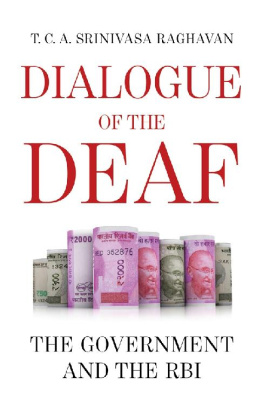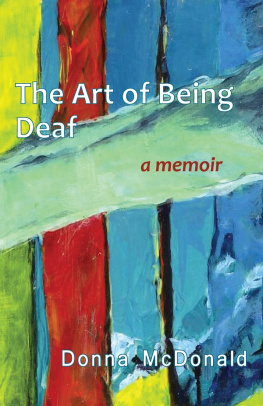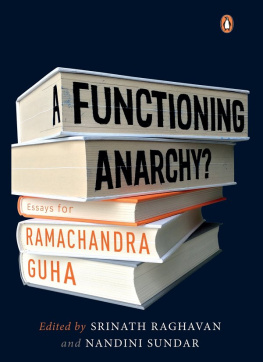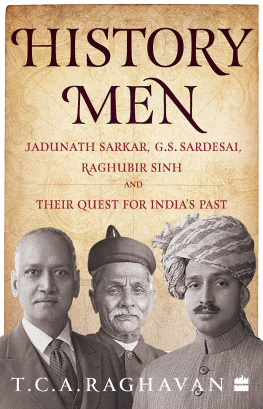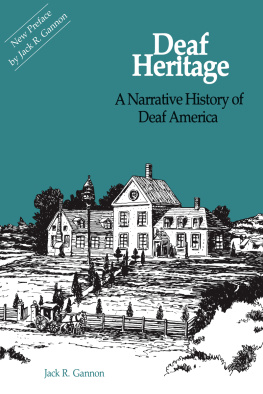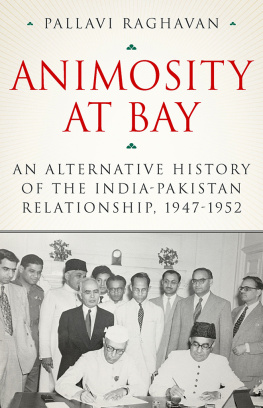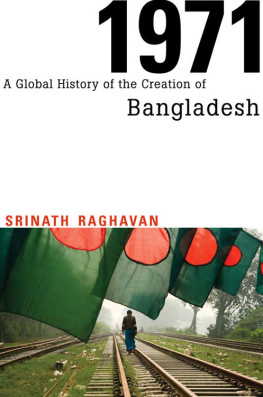Voltaire once said about god: if he did not exist, he would have to be invented. Central banks operate in much the same way. When the times are good, they are taken for granted; when things go wrong, they are prayed to. Like god, central banks also move in mysterious ways: it is hard to tell how much of what they do has economic substance and how much is purely political.
Dialogue of the Deaf is the history of the politics of monetary policy in India. The workings of the Reserve Bank of India and its strange relationship with the government forms the core of the book. It is forever walking the tightrope, torn between the law that governs it and the politics of the governments that control it. Or, as was famously said by the Governor of the Bank of England when it was being set up, it has to play the role of a Hindoo wife who offers advice but never asserts herself.
In this easy-to-grasp book, T. C. A. Srinivasa Raghavan has described some of the main elements of this complex relationship with facts, anecdotes and analysis stretching back to nearly 180 years in a manner easily accessible to the lay reader who wants to get a sense of the workings of money, monetary policy and the men who control it in India.
TRANQUEBAR PRESS
Dialogue of the Deaf
Dialogue of the Deaf
The Government and the RBI
T. C. A. SRINIVASA RAGHAVAN
TRANQUEBAR PRESS
61, II Floor, Silverline Building, Alapakkam Main Road, Maduravoyal, Chennai 600095
93, I Floor, Shamlal Road, Daryaganj, New Delhi 110002
First published in TRANQUEBAR PRESS by westland ltd 2017
First e-pub edition: 2017
Copyright T. C. A. Srinivasa Raghavan 2017
All rights reserved
978-93-86224-48-4
Typeset in Cardo Regular by SRYA, New Delhi
The author asserts his moral right to be identified as the author of this work.
This book is sold subject to the condition that it shall not by way of trade or otherwise, be lent, resold, hired out, circulated, and no reproduction in any form, in whole or in part (except for brief quotations in critical articles or reviews) may be made without written permission of the publishers.
To
The TCA Clan
None better
CONTENTS
At the 2003 Neemrana Conference, Rakesh Mohan, who was a deputy governor at the Reserve Bank of India (RBI), asked me if I would help edit and rewrite some parts of Volume 3 of the RBIs history covering the years 1967-81. I said it would be an honour. And thus began an eight-year-long association with the RBI during which I was associated with different projects.
It ended rather abruptly in 2011 when, after being contracted to help with the writing of Volume 4, Bimal Jalan who was the Chairman of the Advisory Board for it issued a fatwa: the writing has to be dull and boring.
I saw no further use for me and resigned.
Between 2003 and 2011, thanks to the RBIs several acts of generosity, I was able to get a fairly close look at their old files (mentioned as RBI Archives in the references) containing some delicious stuff, some of which I have used and some that I have not used. Some future historian should do that.
I should mention here that in 2010 when the RBI building was being renovated they cleared out the safe in the governors room. In it they found the hand-written diaries of the second governor, John Taylor, who had died in office in 1943. The diaries had been lying there for almost seventy years. They ought to be published, but havent yet been.
Over my eight-year long association, I got a close look at the way the institution thinks and functions. One thing strikes an outsider with great force: how it depends entirely on one man, the Governor. Within a few minutes of signing the register when he takes over he becomes the fount of all wisdom for RBI staff. You may have noticed how few governors say we instead of I.
The mindless coverage of the Governor by the media which started around 2001 has made the problemand believe me, it is a problem as Raghuram Rajan discovered to his costmuch worse. Urjit Patel who has succeeded him, however, is over-correcting by being the proverbial inscrutable oriental.
Anyway, soon after quitting Volume 4 I started wondering if I should not write my own version of money, interest and prices in India with a view to inform and entertain. The late S. S. Tarapore encouraged me to do so, as did a number of others from the RBI and outside.
In early 2015 Shashanka Bhidewho had been one of NCAERs main pillars for almost two decadesand I were idly discussing monetary policy in India. Shashanka had by then become the Director of the Madras Institute of Development Studies.
I mentioned to him that in 2007 I had been briefly associated with an RBI/IGIDR project on monetary history between 1900 and 1950. It had been commissioned by the RBI so that the monumental work P. R. Brahmananda had undertaken for the years 1800-1950 could be completed. He had come up to 1900 when he passed away.
Shashanka asked me to write a working paper for MIDS first. I told him it would be RBI-centric after 1935. That paper has grown into this book because I had, for several years, been informally suggesting to the RBI that it should produce an abridged volume of its history. The four volumes together weigh several kilos and mostly adorn library book shelves. But no one at RBI seemed interested and so I have done it on my own, which means every single minor error is mine.
That said, the book is meant for the layperson wanting to get a sense of Indias monetary history, policy, politics, personalities and the larger institutions that influence them all. It is not, quite emphatically, an academic work and should not therefore be held to those standards, either in style or content. That arid task is best left to economists who prefer to miss the wood for the trees.
So, heres a request: dont nitpick. Instead, just read it to get a sense of it all.
Lastly, this book depends almost entirely on the first three volumes of the RBIs official history, which come up to 1981. The portions from 1982 to 2008 depend on speeches of the governors, deputy governors and other material. I have not touched on the post-2008 years because the institution has been diminished in too many ways since then, not least because the government has wrested back the autonomy the RBI had begun to enjoy after 1992.
That sad story of submission and inadequate governors will have to be chronicled by someone else.
T. C. A. S RINIVASA R AGHAVAN
New Delhi
March 2017
INTRODUCTION
If God did not exist, it would be necessary to invent him, said Voltaire. Central banks are like what Voltaire said about God because, well, central banks offer succour to the sinners as well as the sinned against. In the opaque world of high finance, both global and domestic, the central banks are the saviours. And like all saviours they are ignored and even reviled when times are good, but when the birds come home to roost, they are feted and prayed to. And just as God moves in mysterious ways His wonders to perform, central banks do too, their workings fully and properly hidden, beneath a perceived layer of transparency. No one can fully explain why they do what they do, how much of whatever they do has economic substance and how much is merely political. Indeed, as unaccountable institutions go, central banks come only next to God because by definition whatever they do is for the public good or at least thats the spin.
The reality, however, is different. The idea of the central bank began in Sweden, though the English, typically, have put it about that the world owes the idea of central banks to them. There is no really good reason why central banks should have begun in Sweden. But they did. It is just one of those accidents of history, like paper currency being invented in China.


